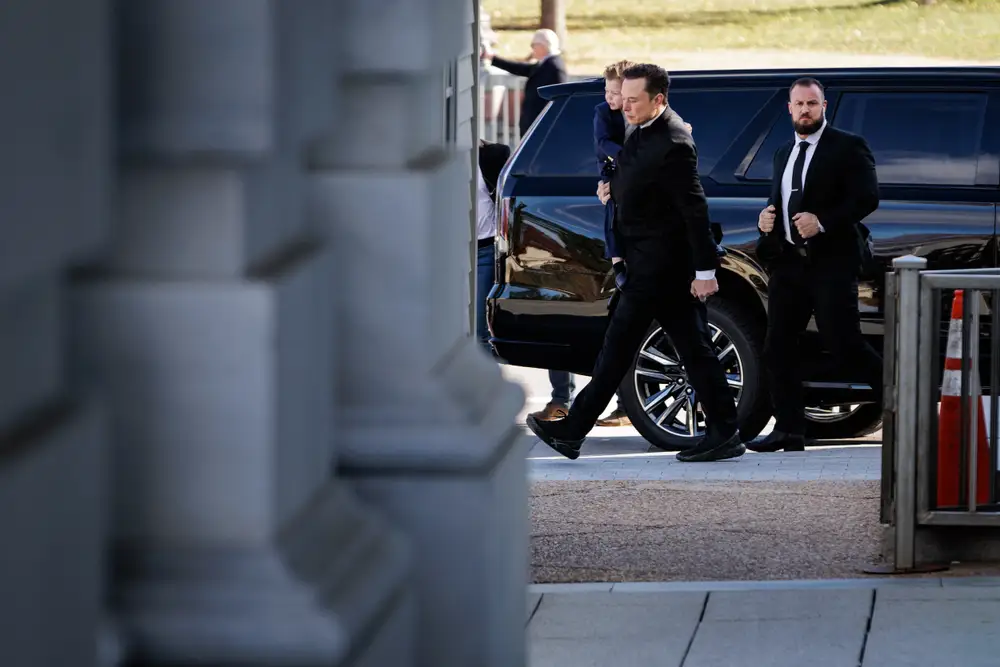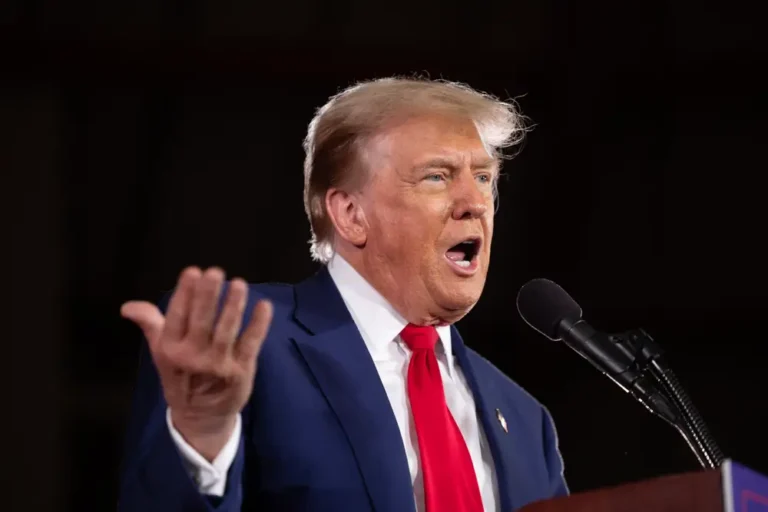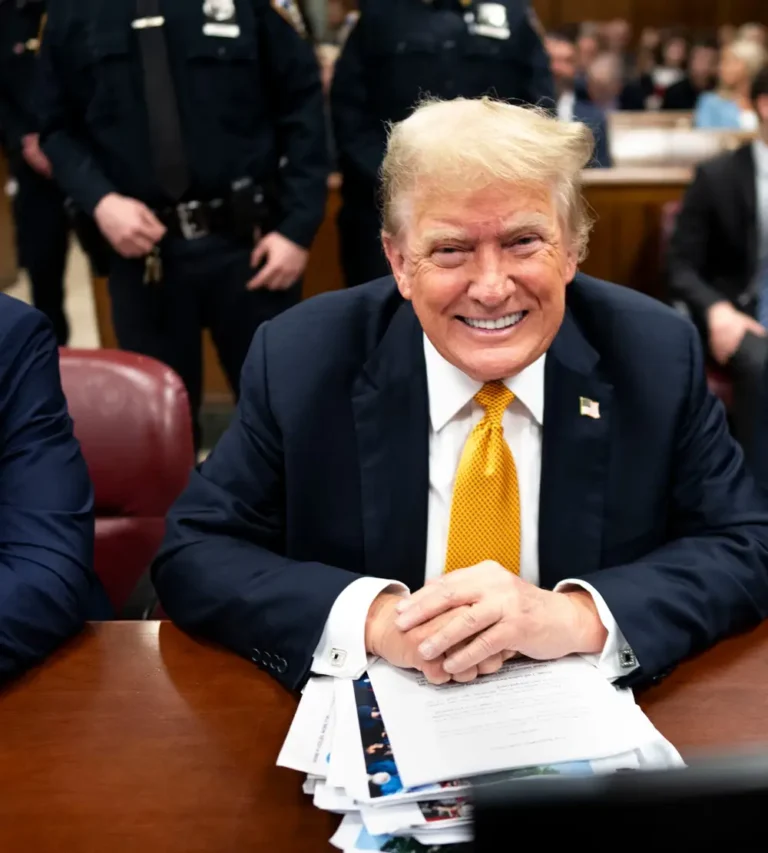Elon Musk says DOGE’s work will be public — legally, it has to be

Elon Musk’s plans for DOGE could change if a federal law comes into play.
Disrupting the federal government might be harder than Elon Musk thought.
President-elect Donald Trump appointed Musk and former 2024 challenger Vivek Ramaswamy to lead the sweeping “Department of Government Efficiency,” which aims to cut $2 trillion out of the federal budget.
According to legal experts, Musk and Ramaswamy’s work may be complicated by a decades-old government transparency law — the exact type of bureaucracy the world’s richest man has chafed against when his companies have tangled with the Securities and Exchange Commission or the FAA.
Congress wrote the Federal Advisory Committee Act in 1972 to rein in the larger number of outside advisors who weighed in on policy matters either at the president’s or a specific Cabinet agency’s behest. It is designed for panels like DOGE, which are led by people outside the federal government. Musk and Ramaswamy wrote in a Wall Street Journal op-ed that they would not officially join the Trump administration.
“Though not much information has come out yet about DOGE, it certainly looks like it is not going to be a department or government agency, it will be an advisory commission, and for that reason, it will fall under FACA’s purview,” Jason Arnold, an associate professor of political science at Virginia Commonwealth University, told B-17.
Musk wrote on X last month that DOGE would post its “all actions” publicly online, but it’s unclear if that means the billionaires will fully comply with the law.
The law says Musk and Ramaswamy need to appoint a Democrat.
The advisory act would affect DOGE’s operations almost immediately. The law requires that panels that fall under its definition be comprised of a balanced membership in terms of “the points of view represented.”
If Trump formally authorizes DOGE after he is sworn in next month, his initial order would need to take this into account. For example, when President Obama created the Bowles-Simpson commission in 2010, his executive order required the 18-member panel to include Republicans and Democrats. The commission, tasked with getting the nation’s finances in order, was also co-chaired by a Democrat, former White House chief of staff Erskine Bowles, and a Republican, former Sen. Alan Simpson of Wyoming.
So far, Trump has named William Joseph McGinley, a long-time attorney for Republican causes, to be DOGE’s general counsel. Musk has already said that DOGE is looking for staffers willing to work 80-plus hours a week for no money.
“Indeed, this will be tedious work, make lots of enemies & compensation is zero. What a great deal!” Musk wrote on X.
Posting DOGE’s activities online might not be enough.
If DOGE complies with the act, it would also have to try to hold public meetings.
Obama’s National Commission on Fiscal Responsibility and Reform, Bowles-Simpson’s actual name, held six public hearings and culminated its work with a final report that caused a political uproar over its recommendations to raise the Social Security retirement age, increase the federal gas tax, and cut Pentagon spending. The act requires at least 15 days of formal notice before a meeting and for explanations to be provided if the panel moves to conduct a private session.
It’s not hard to see how the public disclosure requirements could become a political headache for Trump’s White House, especially if DOGE considers changes to Social Security and Medicare. Unlike most traditional Republicans, Trump has shied away from embracing major reforms to the popular programs. Ramaswamy told Axios that DOGE would look elsewhere for cuts.
Trump and his two advisors have already sparked the ire of some Republicans on Capitol Hill by promising they may try to unilaterally cancel spending, a process known as impoundment that Congress made mostly illegal in 1974.
Musk and Trump could still try to ignore the law.
Just because DOGE looks to fit the definition of the advisory act, doesn’t mean the law’s application is a simple business. In describing the law, the Congressional Research Service, lawmakers’ nonpartisan research arm, concluded that it may ultimately fall to the courts to determine if FACA applies.
Arnold said if Trump and Musk go this route, it may take years to resolve the dispute. This, along with some of the act’s vagueness in areas like what constitutes balanced membership, leaves some loopholes.
“There are a lot of flaws with the law, one of them is that there are no penalties for violations,” said Arnold, who researched FACA for his book “Secrecy in the Sunshine Era.” “It’s almost up to the goodwill or the legal concerns of the administration to follow through.”
The Trump transition team and McGinley did not respond to B-17s requests for comment. Tricia McLaughlin, a spokesperson for Ramaswamy, told USA Today everyone around DOGE “is committed to making sure all DOGE activities are conducted properly and in full compliance with ethical and legal requirements.”
Past White Houses have tried to argue they could do business behind closed doors. President Clinton fought off attempts to argue that then-first lady Hillary Clinton’s participation in closed-door discussions over the administration’s healthcare plan ran afoul of the act. President George W. Bush’s White House engaged in a years-long legal fight over whether it needed to disclose details from his energy task force which Vice President Dick Cheney chaired. It was later revealed that then-Enron CEO Ken Lay was among a host of fossil fuel executives who met with the secretive panel.
When Obama formed the Bowles-Simpson commission, then-House Minority Leader John Boehner called on the White House to make sure the panel didn’t try to do its work behind closed doors.
“If it is your intent to have all proceedings of the Commission adhere to FACA, will the Commission notice all meetings in the Federal Register 15 days in advance, open all meetings to the public, and make all meeting minutes available for public inspection?” Boehner wrote to Simpson and Bowles in 2010.
Musk is already getting to work on DOGE. Rep. Marjorie Taylor Greene of Georgia and Sen. Joni Ernst of Iowa are expected to lead their respective chambers’ work with the panel. Musk was on Capitol Hill this week to discuss what his department will do — those talks were behind closed doors.
“There won’t be a lot of detail for the press today, and that’s by design,” House Speaker Mike Johnson told reporters. “This is a brainstorming session.”






